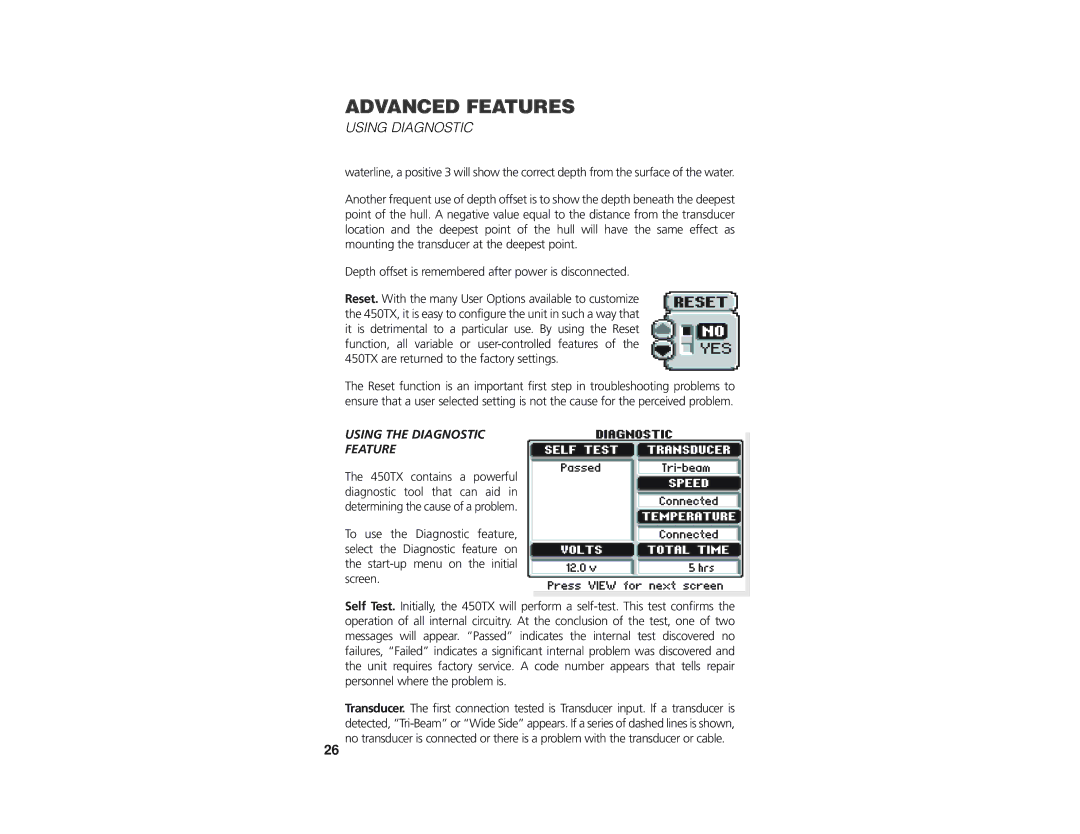
ADVANCED FEATURES
USING DIAGNOSTIC
waterline, a positive 3 will show the correct depth from the surface of the water.
Another frequent use of depth offset is to show the depth beneath the deepest point of the hull. A negative value equal to the distance from the transducer location and the deepest point of the hull will have the same effect as mounting the transducer at the deepest point.
Depth offset is remembered after power is disconnected.
Reset. With the many User Options available to customize the 450TX, it is easy to configure the unit in such a way that it is detrimental to a particular use. By using the Reset function, all variable or
The Reset function is an important first step in troubleshooting problems to ensure that a user selected setting is not the cause for the perceived problem.
USING THE DIAGNOSTIC
FEATURE
The 450TX contains a powerful diagnostic tool that can aid in determining the cause of a problem.
To use the Diagnostic feature, select the Diagnostic feature on the
Self Test. Initially, the 450TX will perform a
Transducer. The first connection tested is Transducer input. If a transducer is detected,
26
